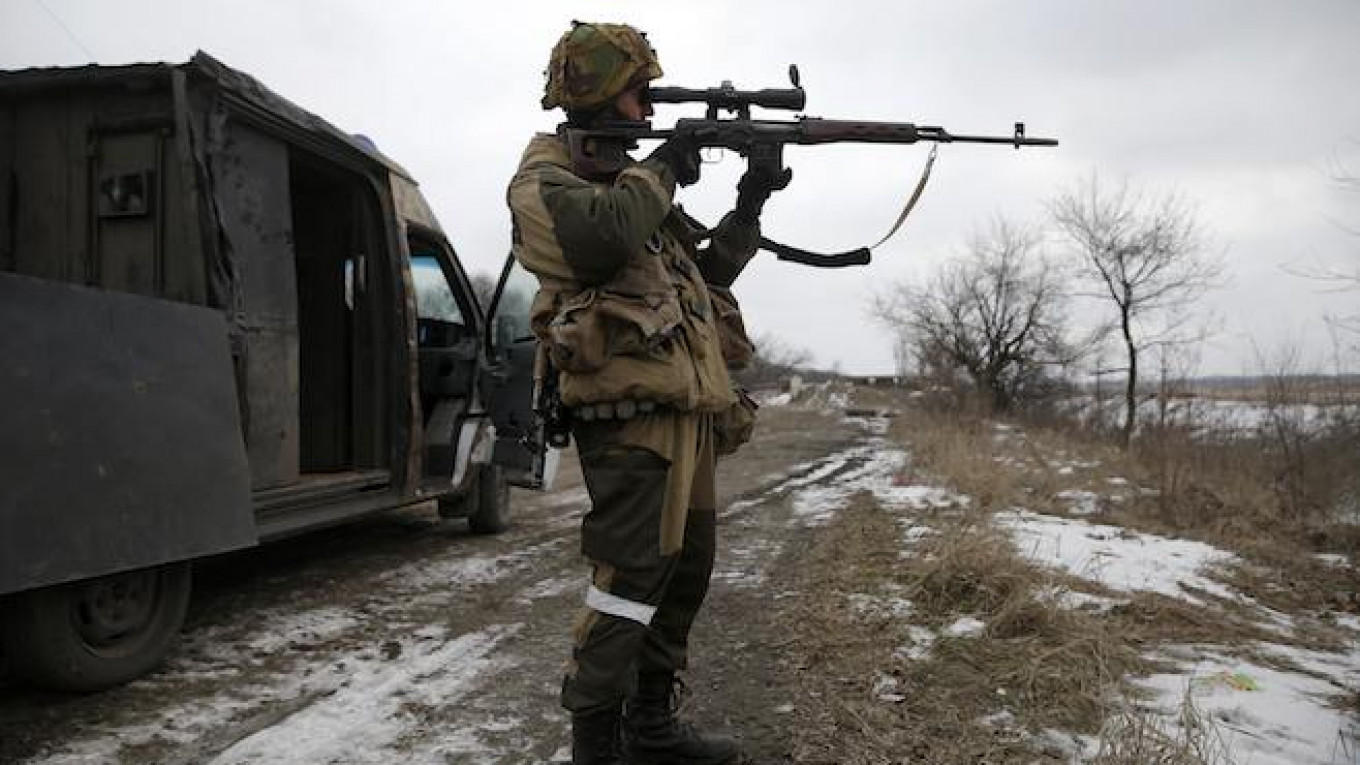Ukraine's military said on Monday one Ukrainian serviceman was killed and four wounded in separatist eastern territories in the past 24 hours, underscoring the fragility of a two-week-old cease-fire deal.
Nonetheless, Ukraine reported a sharp drop in attacks from pro-Russian separatists over the weekend and said it was continuing to pull back heavy weapons from the front line.
But it warned that rebels were using the truce to regroup for new attacks on government positions.
Military spokesman Andriy Lysenko also said pro-Russian rebels continued to receive a "significant" amount of military equipment from neighboring Russia. Moscow has repeatedly denied that it is arming the separatists.
"The enemy is moving heavy weapons and military equipment, primarily in the area of Mariupol," Lysenko said in a televised briefing, referring to a government-held port city that Kiev fears could be the next rebel target.
A fall in the number of attacks and moves by both sides to withdraw heavy weapons from the front line had raised hopes that a fragile truce could hold, even after rebels disavowed last month's peace deal to seize the transport hub of Debaltseve.
"If the situation doesn't worsen, then the Ukrainian side will continue to pull back weapons. For now the process of withdrawal is ongoing," Lysenko said.
Senior rebel commander Eduard Basurin said Sunday that separatists had completed their withdrawal of weapons and denied accusations from Kiev the arms were being returned to the front line, rebel press service DAN reported.
The deputy head of the Organization for Security and Cooperation in Europe's mission in Ukraine has said the OSCE needed details on where withdrawn weapons were being stored, before it could confirm a real pull-back was taking place.
A Message from The Moscow Times:
Dear readers,
We are facing unprecedented challenges. Russia's Prosecutor General's Office has designated The Moscow Times as an "undesirable" organization, criminalizing our work and putting our staff at risk of prosecution. This follows our earlier unjust labeling as a "foreign agent."
These actions are direct attempts to silence independent journalism in Russia. The authorities claim our work "discredits the decisions of the Russian leadership." We see things differently: we strive to provide accurate, unbiased reporting on Russia.
We, the journalists of The Moscow Times, refuse to be silenced. But to continue our work, we need your help.
Your support, no matter how small, makes a world of difference. If you can, please support us monthly starting from just $2. It's quick to set up, and every contribution makes a significant impact.
By supporting The Moscow Times, you're defending open, independent journalism in the face of repression. Thank you for standing with us.
Remind me later.


